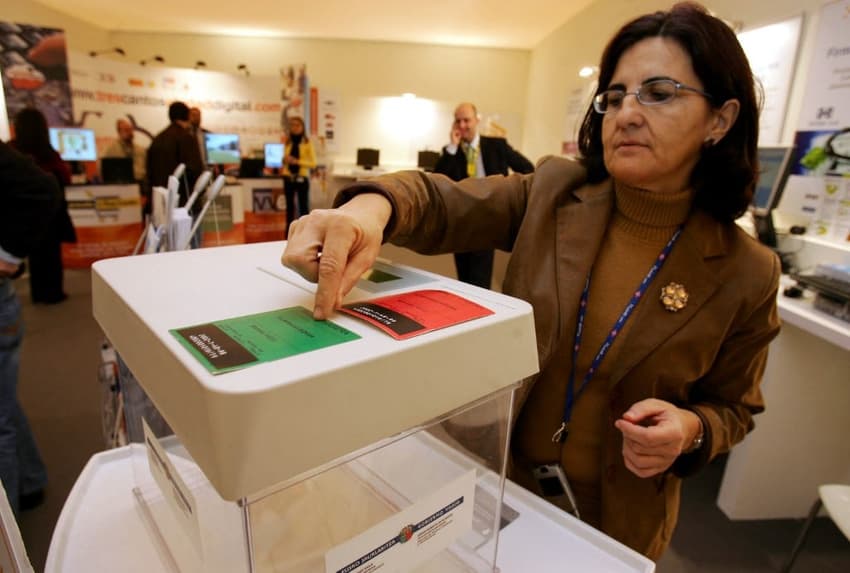Electoral fraud scandals mar Spain's local elections campaign

Several alleged vote-buying scandals marred the end of campaigning Friday for Spain's May 28th local and regional elections in a blow to the ruling Socialist party.
The first such incident was detected in Melilla, one of Spain's two North African enclaves located on Morocco's Mediterranean shoreline where police arrested 10 people earlier this week on suspicion of buying postal votes.
Media reports said families in financial difficulty were being offered between €50 and €200 in exchange for their vote.
READ ALSO: How to vote in person in Spain’s municipal elections
Investigators then uncovered a similar case in Mojácar, a coastal town in southeastern Spain, where police arrested seven people on Wednesday who were due to appear in court Friday. Public television said votes there were being sold for €100.
And in the southeastern town of Albudeite, police briefly arrested another 13 people in connection with a vote-buying scandal before freeing them on conditional release.
READ ALSO: Spain's key regional and local elections at a glance
In Mojácar and Albudeite, the alleged vote-buying involved members of Pedro Sánchez's Socialist party, prompting the right-wing opposition to demand answers from the prime minister, who until now, has kept mum on the subject.
"We demand that the prime minister take full responsibility and explain what has been happening," said opposition leader Alberto Núñez Feijóo, head of the right-wing Popular Party (PP).
Press reports said there have been further complaints about vote-buying in two other areas in which the Socialists have pointed the finger at the PP.
Voters will on Sunday elect mayors in 8,131 municipalities across the country, and chose leaders in 12 of Spain's 17 autonomous regions.
Sunday's vote is seen as a crucial barometer ahead of a year-end general election which polls suggest will be won by the PP although the party is seen falling short of an absolute majority.
Comments
See Also
The first such incident was detected in Melilla, one of Spain's two North African enclaves located on Morocco's Mediterranean shoreline where police arrested 10 people earlier this week on suspicion of buying postal votes.
Media reports said families in financial difficulty were being offered between €50 and €200 in exchange for their vote.
READ ALSO: How to vote in person in Spain’s municipal elections
Investigators then uncovered a similar case in Mojácar, a coastal town in southeastern Spain, where police arrested seven people on Wednesday who were due to appear in court Friday. Public television said votes there were being sold for €100.
And in the southeastern town of Albudeite, police briefly arrested another 13 people in connection with a vote-buying scandal before freeing them on conditional release.
READ ALSO: Spain's key regional and local elections at a glance
In Mojácar and Albudeite, the alleged vote-buying involved members of Pedro Sánchez's Socialist party, prompting the right-wing opposition to demand answers from the prime minister, who until now, has kept mum on the subject.
"We demand that the prime minister take full responsibility and explain what has been happening," said opposition leader Alberto Núñez Feijóo, head of the right-wing Popular Party (PP).
Press reports said there have been further complaints about vote-buying in two other areas in which the Socialists have pointed the finger at the PP.
Voters will on Sunday elect mayors in 8,131 municipalities across the country, and chose leaders in 12 of Spain's 17 autonomous regions.
Sunday's vote is seen as a crucial barometer ahead of a year-end general election which polls suggest will be won by the PP although the party is seen falling short of an absolute majority.
Join the conversation in our comments section below. Share your own views and experience and if you have a question or suggestion for our journalists then email us at [email protected].
Please keep comments civil, constructive and on topic – and make sure to read our terms of use before getting involved.
Please log in here to leave a comment.